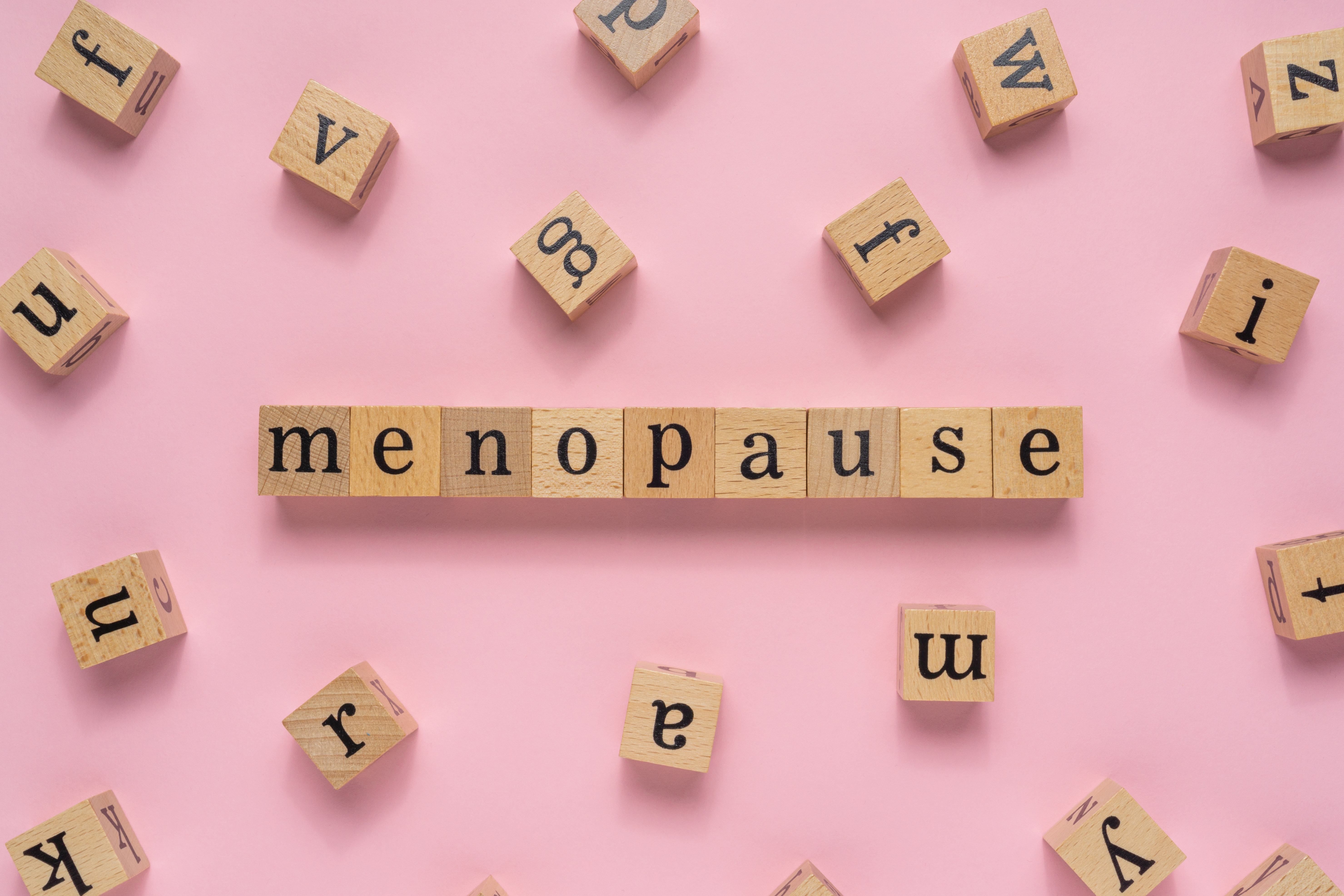Questions about menopause? Here's what one gynecologist says you need to know
At what age should women start thinking about menopause?
Many women assume that menopause is something they will think about by around age 50. While it is true that for most women, the last  menstrual period typically occurs around age 51-52, perimenopause symptoms can start in your 30s and 40s according to The American College of Obstetricians and Gynecologists. Elektra Health recommends women start learning more about perimenopause and menopause around 40, so they can proactively take control of their menopause experience.
menstrual period typically occurs around age 51-52, perimenopause symptoms can start in your 30s and 40s according to The American College of Obstetricians and Gynecologists. Elektra Health recommends women start learning more about perimenopause and menopause around 40, so they can proactively take control of their menopause experience.
What happens during the menopausal transition?
Officially, menopause is defined as the single point in time at which a woman’s monthly menstrual cycle ends. Being “in menopause” or “postmenopausal” means that menstruation has not returned for 12 consecutive months. Biologically, this happens because the ovaries have stopped producing most of their estrogen and progesterone, and the body has stopped releasing eggs or ovulating. Menopause is comprised of three distinct phases:
1. Perimenopause: This translates to “around menopause,” this is the time when hormones start shifting and changing, periods become erratic, and symptoms first begin. Perimenopause is the phase that tends to be most bothersome and is often characterized first by mood and sleep difficulties, worsening PMS and breast discomfort, and weight gain; and eventually, hot flashes, night sweats, and vaginal dryness. However, it is not all bad! Some women do not experience these at all and many have minimal symptoms.
2. Menopause: A point in time when menstruation ends. Typically, menopause is “diagnosed” for sure 12 months after that last period, i.e. retrospectively, since at the time we are not sure if it is truly the last time someone will menstruate. Menopause can also result from a medical condition or surgery.
3. Post-menopause: Life after menopause. Women spend up to half of their lives in the post-menopause phase.
As with all health definitions, the “average age” of menopause onset varies widely across demographics, ethnicity, and geography, so if you don’t fall into one of the categories above—don’t sweat it!
.png?width=450&height=450&name=LIZ-%20Posts%20wrapped%20in%20blog%20III%20(3).png)
What are some of the most common misconceptions about menopause?
- Menopause is all awful. Menopause gets a bad rap—many assume that it is the end of health, youth, beauty, and sex. In reality, menopause is just a normal stage and many symptoms abate on their own with time. For example, for most, sleep, hot flashes, and night sweats do improve. There is also the silver lining to menopause that we often do not talk about: not having to worry about pregnancy or contraception, the resolution of abnormal bleeding or fibroids that afflict so many women, and the wisdom and experience we have when we get to this point! Plus, the average life expectancy for women is now 81—that means most of us will hopefully be around for a long time from average age of menopause — and this time can be no less productive and vibrant than the years before.
- I don’t need to think about menopause until I am 50. In reality, often the most bothersome menopausal phase for women is perimenopause, or the time when our hormones start fluctuating more before they decrease, leading to that last period. Perimenopause can last as long as 10-12 years, so it is helpful to know what to expect and how we can feel better long before 50.
- I just need to suffer through it, it is what it is, and there is nothing to do. There is plenty we can do to feel better in this phase. From basic tools like nutrition, movement, and stress management, through the use of select (and we mean very select supplements, since there are a ton of supplements marketed for menopause and most are not studied, or are ineffective, or at worst, can be harmful), to hormone therapy and medications—the options are numerous. So do not suffer—there is help out there!
.png?width=450&height=450&name=LIZ-%20Posts%20wrapped%20in%20blog%20III%20(4).png)
What are some of the challenges women face during menopause?
As estrogen, progesterone, and testosterone levels shift during the menopause transition, our entire person is affected. Estrogen alone affects 100+ parts of our body, so it makes sense that we feel these shifts everywhere. Levels continue to change, so symptoms evolve over time.
How long does menopause last?
From start to finish, the menopausal transition takes an average of 10 years, with symptoms lasting anywhere from 4 to 5 years on average, though some women will experience them for shorter or longer time periods.
How does a woman know that menopause has started?
Often, one of the first things that women notice as they enter the menopause transition is changes in their period and worsening PMS, often combined with breast tenderness and mood changes. For most women, periods become more frequent, and for some, heavier. This symptom pattern then gives way to the “later” phase of perimenopause, when periods happen more sporadically and are lighter. The more classic symptoms of menopause, such as hot flashes, night sweats, and vaginal dryness, also start to show up more in this phase.
While you can test your hormone levels during perimenopause, given your body's unpredictable fluctuations over the course of several years, this is not very useful. Hormone levels in perimenopause can change daily, so typically they are not used just to identify that you are going through the transition. Sometimes, however, it is important to check hormone levels to make sure that your symptoms are not due, for example, to a thyroid condition.
How many women are impacted by menopause and what kind of disruption does it have on a women's everyday life?
75% of women experience hallmark symptoms of menopause, including hot flashes and night sweats. Roughly 60% experience symptoms related to the vagina, vulva, and bladder, such as decreased libido, stress incontinence, and vaginal dryness. This is likely for you if you’re experiencing itching, painful sex, or increased UTIs. And roughly 45% experience emotional and mental health impacts, including irritability, anxiety, depression, and feelings of distraction.
.png?width=421&height=421&name=LIZ-%20Posts%20wrapped%20in%20blog%20III%20(5).png)
These changes can have a meaningful impact on women’s lives, both personal and professional. For example, an estimated one-third of women experiencing menopause consider leaving the workplace. But before this information starts affecting your mental health, know that many of these changes, like hot flashes, are temporary, and/or have solutions.
Menopause is a normal phase in life. To learn more check out Elektra’s 21st Century Guide to Menopause for resources that can help you through this important life transition.
Guest Author: Dr. Anna Barbieri
 Elektra Health’s founding physician, Anna Barbieri, MD, FACOG, NCMP, is a board-certified gynecologist & integrative medicine specialist. She specializes in helping patients navigate menopause, where she takes a holistic and individualized approach which includes nutrition and lifestyle, and use of hormonal or nonhormonal treatments. Dr. Barbieri completed her OBGYN residency at Mount Sinai Medical Center in New York City, where she is now on faculty. She is a Fellow of the American Board of Obstetrics and Gynecology, and a certified menopause practitioner by the North American Menopause Society.
Elektra Health’s founding physician, Anna Barbieri, MD, FACOG, NCMP, is a board-certified gynecologist & integrative medicine specialist. She specializes in helping patients navigate menopause, where she takes a holistic and individualized approach which includes nutrition and lifestyle, and use of hormonal or nonhormonal treatments. Dr. Barbieri completed her OBGYN residency at Mount Sinai Medical Center in New York City, where she is now on faculty. She is a Fellow of the American Board of Obstetrics and Gynecology, and a certified menopause practitioner by the North American Menopause Society.
